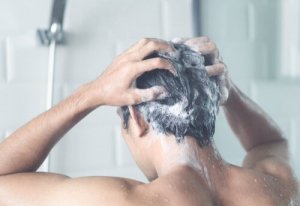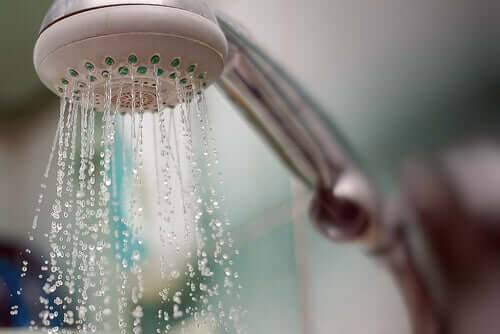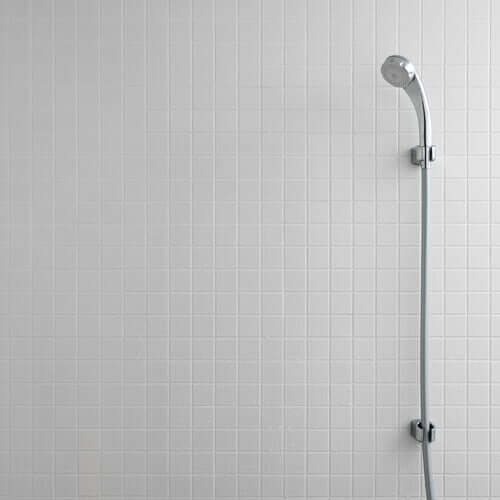Is it Important to Shower Every Day During Confinement?


Written and verified by the doctor Leonardo Biolatto
The world has become paralyzed by the coronavirus pandemic that continues to spread at a rapid rate throughout the world. With home confinement as one of the main measures of social isolation, we may often wonder whether we still need to shower every day, even if we don’t leave the house.
All our routines have been disrupted, and this change in habits has disrupted what we do on a normal day. That’s the problem. We no longer have “normal” days, and we won’t have until the confinement is lifted.
In some countries, confinement or quarantine is compulsory and a legal measure. You can’t violate it, as you’d be breaking the law. In other places, there are lighter restrictions that don’t prevent public movement. However, they do reduce working hours and encourage teleworking.
In these conditions, some people spend a large part of their day inside the home. They may wonder whether or not it’s really important to take a shower every day, even if they don’t go out. To respond to this question, we must first understand what happens to the body when we don’t shower regularly.
What happens to the body if we don’t shower every day?
The human body goes through a series of changes when you don’t bathe frequently. These tend to be harmful. Even if you haven’t been physically active, or in contact with the outside world, these changes occur.
One of them is that your metabolism slows down. Bathing stimulates the generation of energy by the body’s cells, and this, in turn, sets in motion various energy processes that are otherwise shut down.
Showers also remove dead tissue. The skin has a continuous process of cell replacement. The name given to this is apoptosis, which is a programmed cell death that enables new cells to replace them. Washing helps clear the way for new cells.
Finally, there’s the most obvious effect: the smell. However, this doesn’t happen from perspiration, as you might expect. What happens is that, if we don’t wash frequently, then we let the bacteria settle on the skin. When they build up too much, their metabolic processes, plus the accumulated dead tissue, go into decay. The peak of this situation is the condition known as neglected dermatosis.

Read on: Is it good to bathe in cold water?
Neglected dermatosis
Neglected dermatosis is a disease that came to light quite recently, in the 1980s. The main symptom for those who suffer from it is the formation of pigmented plaques on the skin. These plaques begin to accumulate a bad smell as the days go by. The reason for the odor isn’t sweat, but rather the putrefaction of bacteria and accumulated dead tissue.
Although it’s rare for this condition to occur in people without psychiatric disorders, it has been seen in adolescent groups that neglect hygiene to extreme levels. Our confinement is unlikely to lead to this situation, but it’s important to know that a lack of hygiene can lead to illness.
How many times should you take a shower?

However, it’s also not healthy to shower several times a day for fear of accumulating bacteria. During confinement, the temptation to shower too much may also occur. We may do this simply because of the contagion risks, or also out of boredom.
Specialists agree that showering every day isn’t counterproductive, unless we do it excessively. If we overdo it, then we may remove the layer of fat used by the epidermis to maintain body temperature and protect us from external agents.
Maintaining hygiene is necessary to the extent that our body requires it. That’s why experts recommend taking a shower every day, even if you don’t leave the house. This way, you’ll activate your metabolism, keep your skin clear of dead tissue, and prevent bacteria from accumulating.
It’s worth reminding you that, in these times of coronavirus, handwashing is a completely different matter. Hand hygiene must be done several times a day and with soap to stop the spread of COVID-19. Even before this pandemic outbreak, proper handwashing was part of the hospital protocol for any virus or bacteria.
Find out more: Showering with very hot water can be dangerous to your health
The importance of healthy routines
Coronavirus confinement or self-isolation will change us physically and mentally, but routines like showering are very useful. If we manage to establish regular schedules and activities, then we’ll overcome confinement in a more ordered way and with fewer side effects.
Taking a shower every day, even if you don’t leave the house, can be one of the important tasks to establish a healthy daily routine.
All cited sources were thoroughly reviewed by our team to ensure their quality, reliability, currency, and validity. The bibliography of this article was considered reliable and of academic or scientific accuracy.
- Faílde, Rosa Meijide. “20. Afecciones dermatológicas y cosmética dermotermal.” Técnicas y Tecnologías en Hidrología Médica e Hidroterapia (2006): 175.
- Poskitt, L., et al. “‘Dermatitis neglecta’: unwashed dermatosis.” British Journal of Dermatology 132.5 (1995): 827-829.
- González-Consuegra, Renata Virginia, Diana Carolina Pérez-Valderrama, and Luisa Fernanda Valbuena-Flor. “Prevención de lesiones de piel: educación en el equipo de salud y familiares de personas hospitalizadas.” Revista de la Facultad de Medicina 64.2 (2016): 229-238.
- Fick, Sylvina Alvarado. “Implementación de estrategia multimodal en higiene de manos en un hospital pediátrico.” Benessere. Revista de Enfermería 3.1 (2019).
This text is provided for informational purposes only and does not replace consultation with a professional. If in doubt, consult your specialist.








